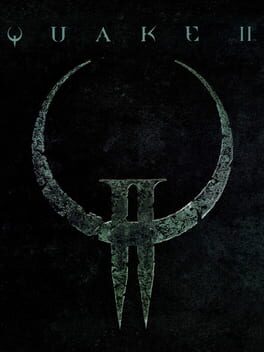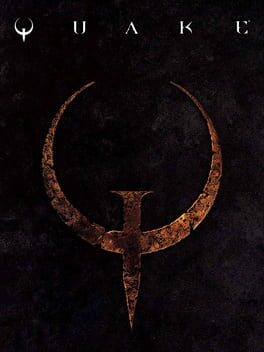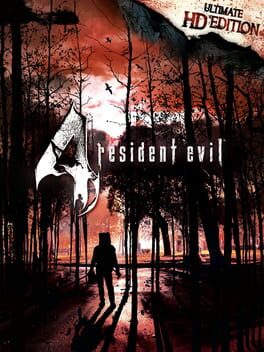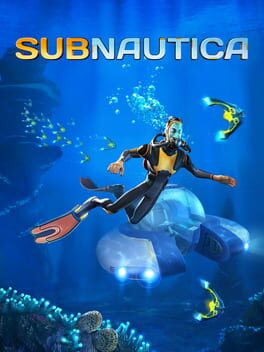ching
Bio
Professional hater
Professional hater
Badges

Best Friends
Become mutual friends with at least 3 others

Noticed
Gained 3+ followers

GOTY '23
Participated in the 2023 Game of the Year Event
Favorite Games
071
Total Games Played
000
Played in 2024
006
Games Backloggd
Recently Played See More
Recently Reviewed See More
I hadn't heard much about Quake 2 before playing it, other than that it was a bit of a black sheep and that people didn't really like it. I played the Nightdive remasters of both Quake 1 and 2, and for Quake 1 I didn't enable any of the new effects the remaster added as I thought they looked kind of tacked on and like an afterthought, but with Quake 2 I kept most of the new effects on as they fit much better with the game's artstyle this time around.
I was shocked when shortly after starting Quake 2 I learnt that it wasn't a traditional mission-based episodic structure like, well, pretty much every FPS of that era, but instead they were interconnected levels with somewhat open-ended exploration, backtracking, and unlocking shortcuts. This is a game that predates Half-Life by two years and yet I rarely see anyone bring up the level/world design of it. On top of this the levels are also a notable evolution. Quake (like many other shooters) had levels that were more abstract series of corridors and brushes that were supposed to represent an area, but Quake 2 levels feel real, they feel purposeful and functional, which is something Half-Life is often credited for being the pioneer of.
The guns are a bit of a mixed bag compared to Quake 1, which had a relatively quaint but functional roster of weapons, Quake 2's weapon selection feels bloated by comparison, and it's detrimental in multiple ways. The most immediate one is that several weapons step over each other in terms of usefulness. The grenade launcher, rocket launcher, and railgun all feel like they're used for the same purpose, same with the hyperblaster and chaingun, both are guns with notable wind-ups (and downs) that do heavy damage and chew through ammo. The shotguns, machine gun, and BFG 10K are the only weapons that feel like they truly stand on their own and aren't competing for usefulness (also small tangent, but the super shotgun in this game is absolutely godlike. The sound design and animation is incredible and several stronger enemies get visibly staggered and knocked back by it if they don't get gibbed altogether).
Another new thing introduced by this game is how power-ups are used. If you've played any 90s shooter you are well aware that power-ups are just something you generally pick up and they're instantaneously used on the spot, you have a limited amount of time to make do with your newfound godhood and that's completely fine. Quake 2 shakes things up, now you have an inventory and power-ups get put straight into it, waiting to be used for later. There are things I like and dislike about this system. Obviously it adds a layer of strategy to using power-ups instead of just going hogwild whenever you come across one, and also stops that horrible feeling when you clear a room of enemies, explore around for secrets, and then find a quad damage you could've used on them but now there's nothing around anymore. But this design was very intentional, FPS games of the time would design encounters around this limitation to make exploring more rewarding or making cathartic rooms where you get something like a quad damage and just unload on all the enemies around. In Quake 2, nothing can be balanced around power-ups, as there's no guarantee as to if you'll be able to use one or not. This also means intentionally difficult sections can be cheesed by popping a quad damage. This isn't a horrible drawback for a game like Quake 2, as even on hard it's not a very challenging game (and that's fine), but it is something lost from shooters of its era.
Story is not worth covering, it's about as light as any other 90s shooter, although it is slightly more in your face instead of just being delegated to a manual or end of episode text block, and it's told more diagetically as well.
The visuals are similar to its predecessor's in some ways, mainly in the color choice of browns and grays, but the environments are a tiny bit more varied. The music is where the real split in presentation between the two games occur. Quake 1's OST was a masterclass in atmosphere and immersion, being famously composed by Trent Reznor of Nine Inch Nails, it was industrial, ambient, and harrowing, and I often found myself being unnerved by some songs. Quake 2's is quite the opposite, being composed by Sonic Mayhem, it's much more traditional, being full of blood pumping and memorable tunes. I don't like one more than the other, both fit their respective games incredibly well, and I wouldn't change anything about either of them (but Quake 2's is probably the one you'd catch me actively listening to).
Overall I enjoyed Quake 2 more than the first one, it was an incredibly enjoyable and fairly unique experience that I'm glad Nightdive has put in the spotlight. The remaster is only 10 dollars and comes with 4 or so expansion packs and a port of Quake 64 as well, which is a whole other (yet more traditional) beast.
I was shocked when shortly after starting Quake 2 I learnt that it wasn't a traditional mission-based episodic structure like, well, pretty much every FPS of that era, but instead they were interconnected levels with somewhat open-ended exploration, backtracking, and unlocking shortcuts. This is a game that predates Half-Life by two years and yet I rarely see anyone bring up the level/world design of it. On top of this the levels are also a notable evolution. Quake (like many other shooters) had levels that were more abstract series of corridors and brushes that were supposed to represent an area, but Quake 2 levels feel real, they feel purposeful and functional, which is something Half-Life is often credited for being the pioneer of.
The guns are a bit of a mixed bag compared to Quake 1, which had a relatively quaint but functional roster of weapons, Quake 2's weapon selection feels bloated by comparison, and it's detrimental in multiple ways. The most immediate one is that several weapons step over each other in terms of usefulness. The grenade launcher, rocket launcher, and railgun all feel like they're used for the same purpose, same with the hyperblaster and chaingun, both are guns with notable wind-ups (and downs) that do heavy damage and chew through ammo. The shotguns, machine gun, and BFG 10K are the only weapons that feel like they truly stand on their own and aren't competing for usefulness (also small tangent, but the super shotgun in this game is absolutely godlike. The sound design and animation is incredible and several stronger enemies get visibly staggered and knocked back by it if they don't get gibbed altogether).
Another new thing introduced by this game is how power-ups are used. If you've played any 90s shooter you are well aware that power-ups are just something you generally pick up and they're instantaneously used on the spot, you have a limited amount of time to make do with your newfound godhood and that's completely fine. Quake 2 shakes things up, now you have an inventory and power-ups get put straight into it, waiting to be used for later. There are things I like and dislike about this system. Obviously it adds a layer of strategy to using power-ups instead of just going hogwild whenever you come across one, and also stops that horrible feeling when you clear a room of enemies, explore around for secrets, and then find a quad damage you could've used on them but now there's nothing around anymore. But this design was very intentional, FPS games of the time would design encounters around this limitation to make exploring more rewarding or making cathartic rooms where you get something like a quad damage and just unload on all the enemies around. In Quake 2, nothing can be balanced around power-ups, as there's no guarantee as to if you'll be able to use one or not. This also means intentionally difficult sections can be cheesed by popping a quad damage. This isn't a horrible drawback for a game like Quake 2, as even on hard it's not a very challenging game (and that's fine), but it is something lost from shooters of its era.
Story is not worth covering, it's about as light as any other 90s shooter, although it is slightly more in your face instead of just being delegated to a manual or end of episode text block, and it's told more diagetically as well.
The visuals are similar to its predecessor's in some ways, mainly in the color choice of browns and grays, but the environments are a tiny bit more varied. The music is where the real split in presentation between the two games occur. Quake 1's OST was a masterclass in atmosphere and immersion, being famously composed by Trent Reznor of Nine Inch Nails, it was industrial, ambient, and harrowing, and I often found myself being unnerved by some songs. Quake 2's is quite the opposite, being composed by Sonic Mayhem, it's much more traditional, being full of blood pumping and memorable tunes. I don't like one more than the other, both fit their respective games incredibly well, and I wouldn't change anything about either of them (but Quake 2's is probably the one you'd catch me actively listening to).
Overall I enjoyed Quake 2 more than the first one, it was an incredibly enjoyable and fairly unique experience that I'm glad Nightdive has put in the spotlight. The remaster is only 10 dollars and comes with 4 or so expansion packs and a port of Quake 64 as well, which is a whole other (yet more traditional) beast.
I played this game throughout a large portion of early access, and the full release left me with a sour taste in my mouth. Content-wise it's a fully complete game with an ending and everything, but the game is embarrassingly buggy and it runs really bad. There is horrible pop-in everywhere and you'll find yourself walking across the seafloor at least once. There are also parts of the game that involve filling basic grocery lists, and these are astronomically tedious. There are good parts of the game though. Climbing up the tech tree is fun and engaging and while there isn't a huge variety of tools, they are all unique and at least a little useful. Progression in general is done very well and the atmosphere in most areas was nailed. If you like survival games I would say give it a whirl if you somehow haven't already, this is probably one of the better in its genre, but be prepared for tedium and glitches.
A game that's hard to review objectively because of how tailored to a specific type of person it is, but if you're the type of person Rain World is made for then it's probably one of the best games you'll ever play. Incredible world design combined with a beautiful artstyle, tough to learn but fun to master movement mechanics, and an entirely simulated ecosystem lends this platformer to being an supremely unique experience.










